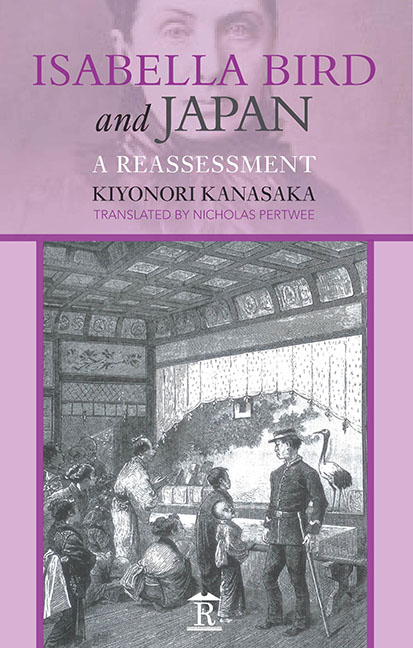Book contents
- Frontmatter
- Dedication
- Contents
- Foreword
- Author’s Preface to the English Edition
- Translator’s Preface
- Preface to the Japanese Edition
- Maps of Isabella Bird’s Travels in Japan (Figs 1–3)
- Chapter 1 Interpreting Bird’s Travels and Unbeaten Tracks in Japan
- Chapter 2 Isabella Bird – A Life of Travel
- Chapter 3 Aspects of Bird’s 1878 Visit to Japan
- Chapter 4 Access and Support in Japan
- Chapter 5 The Legacy of Bird’s Stay in Japan
- Endnotes
- Postscript to the Japanese Edition
- Chronology: The Life of Isabella Bird
- Bibliographies
- Index
Chapter 1 - Interpreting Bird’s Travels and Unbeaten Tracks in Japan
Published online by Cambridge University Press: 06 May 2022
- Frontmatter
- Dedication
- Contents
- Foreword
- Author’s Preface to the English Edition
- Translator’s Preface
- Preface to the Japanese Edition
- Maps of Isabella Bird’s Travels in Japan (Figs 1–3)
- Chapter 1 Interpreting Bird’s Travels and Unbeaten Tracks in Japan
- Chapter 2 Isabella Bird – A Life of Travel
- Chapter 3 Aspects of Bird’s 1878 Visit to Japan
- Chapter 4 Access and Support in Japan
- Chapter 5 The Legacy of Bird’s Stay in Japan
- Endnotes
- Postscript to the Japanese Edition
- Chronology: The Life of Isabella Bird
- Bibliographies
- Index
Summary
A scientific study
WHEN I SAID in my Preface that my research into Bird was done on scientific lines, this was not to suggest that I had been pedantic or doctrinaire, bandying words about and dispensing needless theories. No, I like to think that my approach was quite the opposite of that.
Research into travel and travel books has changed greatly since the latter half of the 1970s, but the new era it can be said to have embarked on gained pace particularly in the 1980s when, taking its lead from E.W. Said, a multiplicity of modern ideas was embraced: these included orientalism and post colonialism, feminism, cultural studies, critical theory, gender study and discours. However, the view I take is that these methods actually do more to hide the meaning of past events, which makes appropriate research that clarifies them all the more necessary.
This type of targeted research generally has a group of people rather than a particular person in mind. It tends, in other words, to go beyond the individual, and if the researcher introduces any element of individuality at all he will opt for random events that suit his agenda. But in Bird's case too much would remain obscure if this form of assessment was adopted, as her activities were so varied and wide-ranging. Her many journeys were made over nearly half a century and took her to every continent apart from South America and the then-unexplored Antarctica. She wrote fourteen books about her travels, which take up seventeen actual volumes, and compiled two photographic collections to which, from my examination of the bibliography, some 150 pieces should be added from across a range of genres including hymns, Christianity, criticism, reportage, geographic descriptions and the like which were published in various journals and newspapers. And as if this was not enough, she also undertook charitable works and lecture tours.
From this point of view, the benefits of focusing on a particular individual and examining his or her travels and books outside an academic framework are soon made obvious, as are the advantages of research that leads to conclusions different from those that have come to be accepted.
- Type
- Chapter
- Information
- Isabella Bird and JapanA Reassessment, pp. 1 - 14Publisher: Amsterdam University PressPrint publication year: 2017



